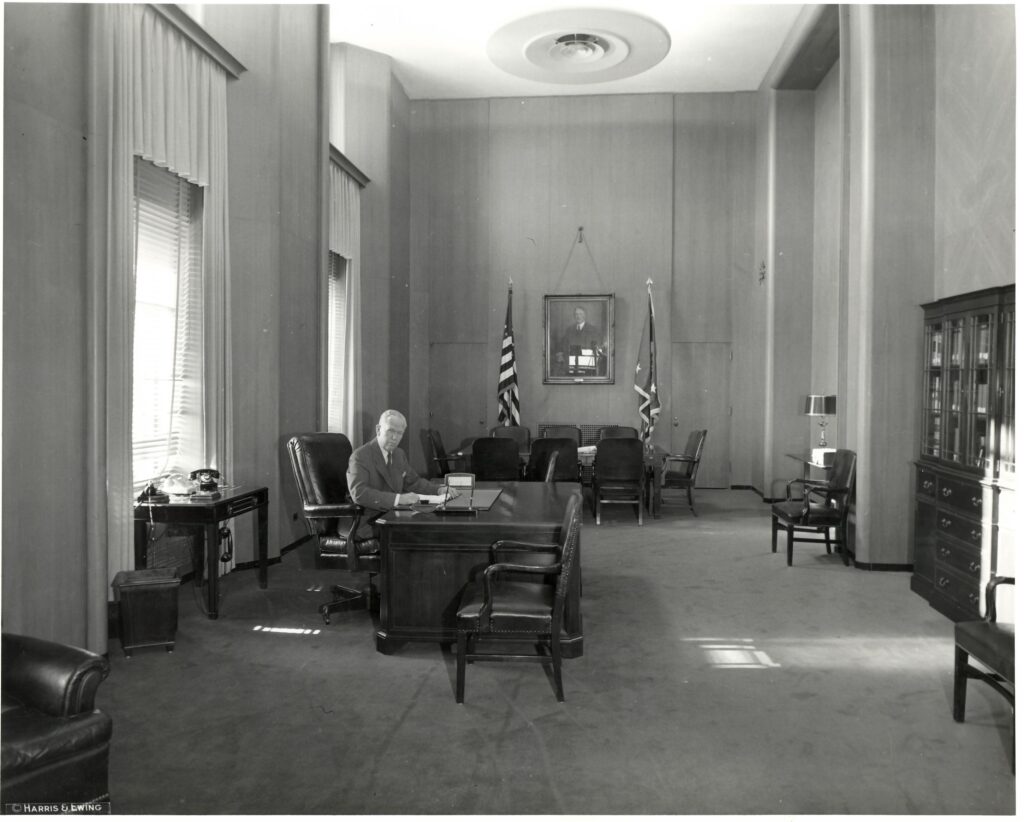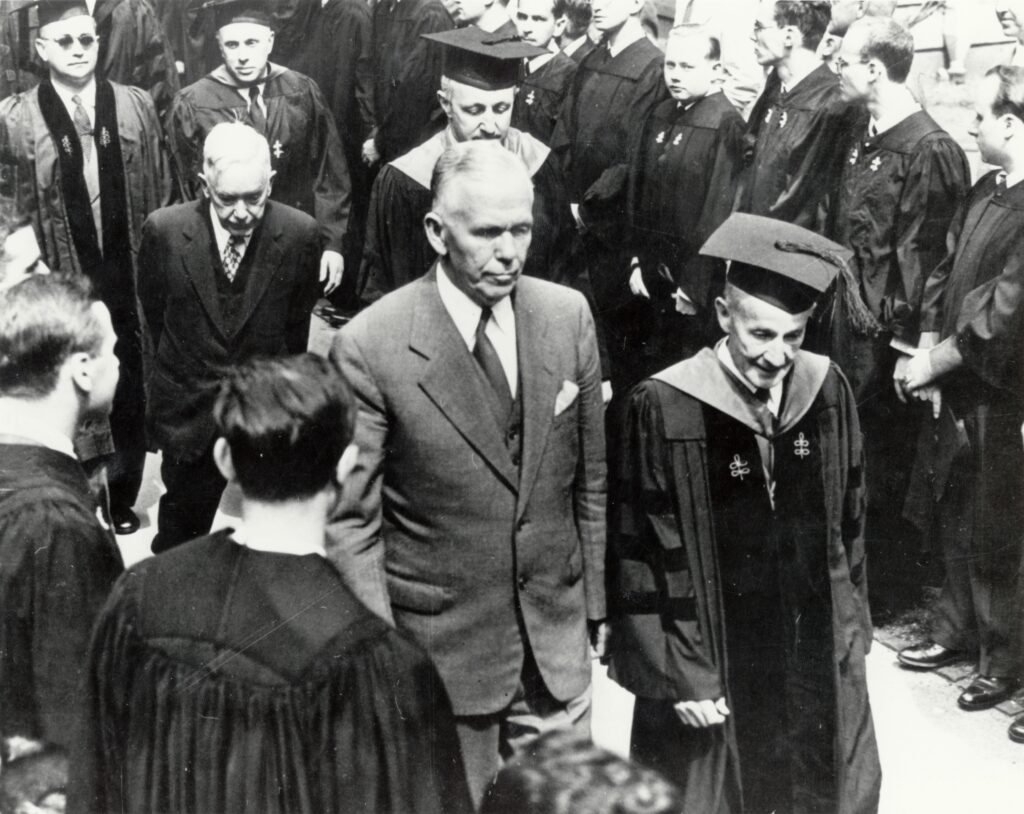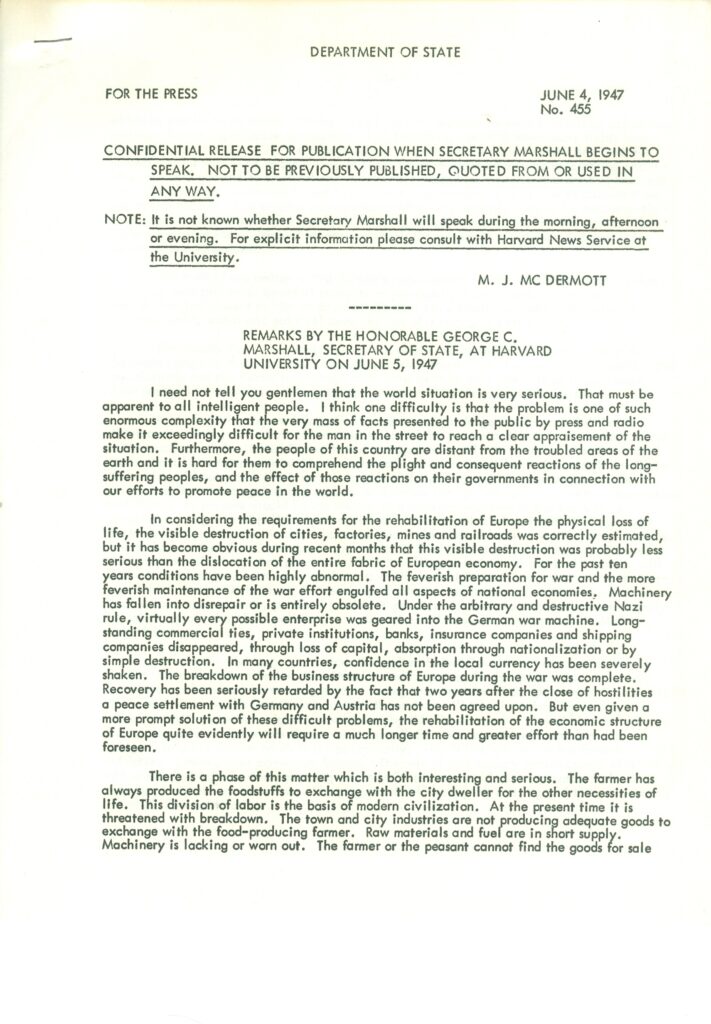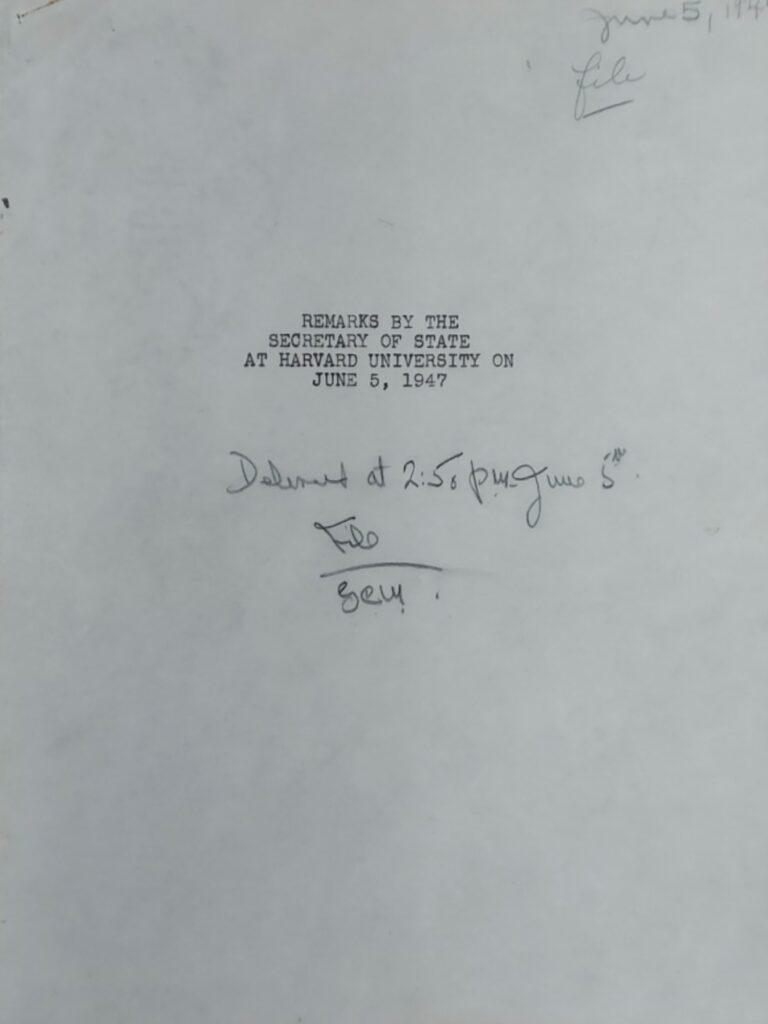"Our policy is directed against hunger, poverty, desperation and chaos."
As the situation in Europe grew more dire during the spring of 1947, Secretary of State George Marshall knew that he needed to begin the process of helping the people of Europe in a very organized and long-lasting way soon.

Secretary of State George Marshall in his office, May 1947. Harris & Ewing photo.
Harvard University had offered Marshall an honorary degree in 1945, 1946, and earlier in 1947. Marshall had replied to the 1947 offer it was “impossible for me at the present time to give you a definite indication of whether or not I can be present” to accept the degree that year, as he had only been Secretary of State a few days.
The last week of May, Marshall decided that Harvard on June 5 would be a good time to introduce the topic of a plan to help the people of Europe and enable European countries to become part of the world economy again.
On May 28, Marshall wrote a letter to Harvard University President James Conant, “I will not be able to make a formal address, but would be pleased to make a few remarks in appreciation of the honor and perhaps a little more.”
He then wrote a memorandum to Brig. Gen. Marshall Carter, his special assistant at the State Department, instructing him to “prepare a draft for a less than 10-minuted talk by me at Harvard. The substance of the talk might be reference to the extremely critical period through which we are passing. It is of tremendous importance that our people understand the situation in Europe, the plight of the people, their very natural reactions, and particularly the dominant character of the economic factors.”
Carter sent the State Department Policy Planning Staff report from May and some other information to Chip Bohlen, Soviet expert at the State Department who worked with Marshall on many speeches. Marshall also sent a request for a draft to George Kennan, head of the Policy Planning Staff and then wrote one himself. After a number of meetings held in the next few days, the “end result was very much a combination of all three,” noted Marshall.

Secretary of State George Marshall in the processional at Harvard on June 5, 1947. Photo courtesy of HUPSF Commencement 1947. Harvard University Archives.
No one at the State Department, or President Truman, knew exactly what Marshall would say on June 5. Undersecretary of State Dean Acheson received a dictated copy of the speech by telephone so the necessary press release could be made. This release was not made in the normal double-spaced format for ease of quoting on the radio; it was single spaced, which was a tacit message to the press that it was unimportant.

State Department Press Release for Secretary of State George Marshall’s speech at Harvard.
Marshall also wanted no press invited to his short talk. He did ask Acheson to notify the BBC to pay attention, as Marshall wanted the first response to his speech to come from some of the countries that would benefit from the ideas in his text.

Secretary of State George Marshall’s reading copy of his speech.
At 2:50 p.m., Marshall began to speak. He said that the “rehabilitation of the economic structure of Europe quite evidently will require a much longer time and greater effort than had been foreseen.” He laid out the responsibility that the United States would have in this assistance: “The truth of the matter is that Europe’s requirements for the next three or four years of foreign food and other essential products – principally from America – are so much greater than her present ability to pay that she must have substantial additional help, or face economic, social and political deterioration of a very grave character.” The solution, he said, “lies in breaking the vicious circle and restoring the confidence of the European people in the economic future of their own countries and of Europe as a whole.”
Marshall stated that “our policy is directed not against any country or doctrine but against hunger, poverty, desperation and chaos.” He said that help “must not be on a piece-meal basis as various crises develop.”
He pointed out that “it would be neither fitting or efficacious for our Government to undertake to draw up unilaterally a program designed to place Europe on its feet economically. This is a business of the Europeans. The initiative, I think, must come from Europe.”
He ended by explaining that “it is of vast importance that our people reach some general understanding of what the conditions really are, rather than react from a passion or prejudice or an emotion of the moment. We are remote from the scene of these troubles. And yet the whole world of the future hangs on a proper judgment. What is needed? What must be done?”
After speaking a short 12 minutes, Secretary of State George Marshall had changed the course of the world.
Before becoming director of library and archives at the George C. Marshall Foundation, Melissa was an academic librarian specializing in history. She and her husband, John, have three grown children, and live in Rockbridge County with three large rescue dogs. Melissa is known as the happiest librarian in the world! Keep up with her @MelissasLibrary.
